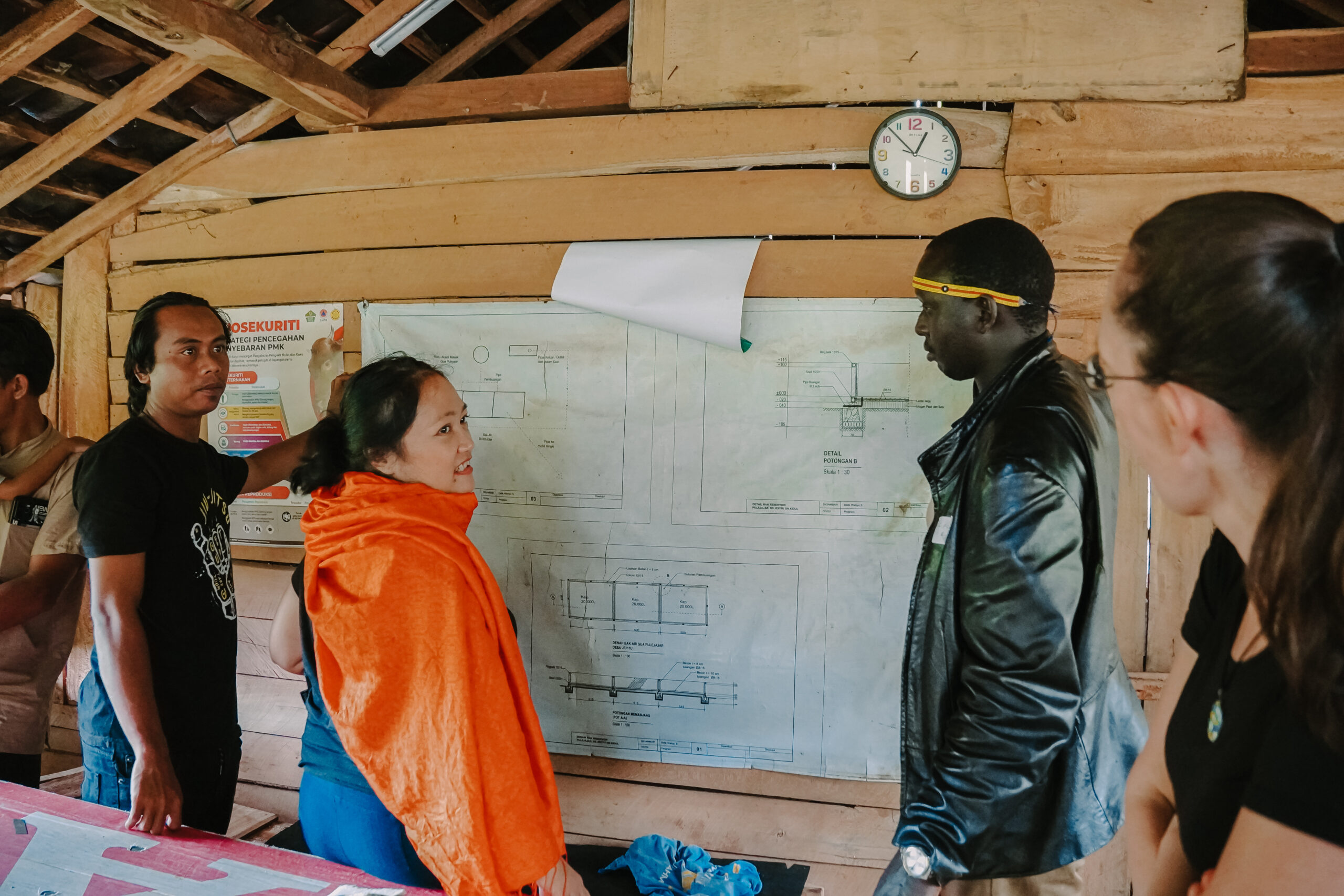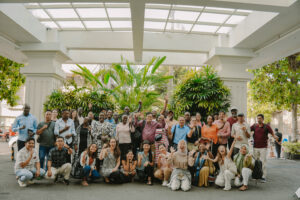
Starting in early 2023, Namati and Grassroots Justice Network members found themselves responding to carbon projects within the communities where they work. Building on our deep experience supporting grassroots land and environmental justice, Namati and our partners moved quickly to better understand the sector. We created a learning course for advocates supporting communities to respond to carbon projects on their land.

This was a big learning exchange – 18 organizations from 11 countries!
The questions we sought to answer were:
The learning course was a strong success!
A total of 44 individuals joined the course representing 18 organizations from 11 countries. This cohort co-created 7 months of curriculum to explore how to best support communities to understand and respond to carbon projects; influence the rules that govern them; and negotiate a fair deal. The course began with four 2-hour virtual sessions followed by a 1-week in person convening in Yogyakarta, Indonesia in 3 languages!
In addition to absorbing a new technical field, we have learned a lot about the role of legal empowerment:
“Kenya and Zimbabwe have carbon laws that don’t adequately address transparency; free, prior, and informed consent; tenure security; or the participation of indigenous land owners in decision-making. In Sierra Leone we have yet to create legislation. This gives us an opportunity to avoid these types of mistakes that end up disadvantaging communities and indigenous people.” – Tommy Abdulai, Sierra Leone
“Where carbon is stored on community land, it’s important that it be treated as a community resource, not a national resource…It was empowering to see the formidable power of unity from local women in Jamboran District facing circumstances stronger than themselves. It is not easy to silence women standing up against environmental destruction.” – Ruth Okara, Kenya
“We had the opportunity to travel to a nearby community which has been battling with a mining company. This company has been exploring marble stones for last two decades, and they had sought to access a significant chunk of the community’s land; however, the community pushed back and explored alternative initiatives like local tourism, and economic activities such as local coffee shops like the photo below… I found this particularly interesting and true representation of communities’ ability to push back on investment models that destroy the environment.” – David Arach, Kenya
There is a strong need for deeper and broader learning. To reach more grassroots justice advocates looking for introductory learning, we are exploring ways to move more of the learning into self-guided online spaces and partner with others who can support in creating some content.
Building on the developing consensus about what communities need to thrive during carbon projects, we are hoping to influence forthcoming national policies across Africa and global policy in the voluntary and compliance markets.
In the coming months, we’ll work on articulating a carbon justice campaign. We are still in the early phase of planning such a campaign, and we would value your insight and advice on how we can organize. If you want to follow this campaign, sign up to be a member of our working group where we have monthly meetings and discuss not only issues related to carbon markets, but also strategies and experiences in responding to the climate crisis.